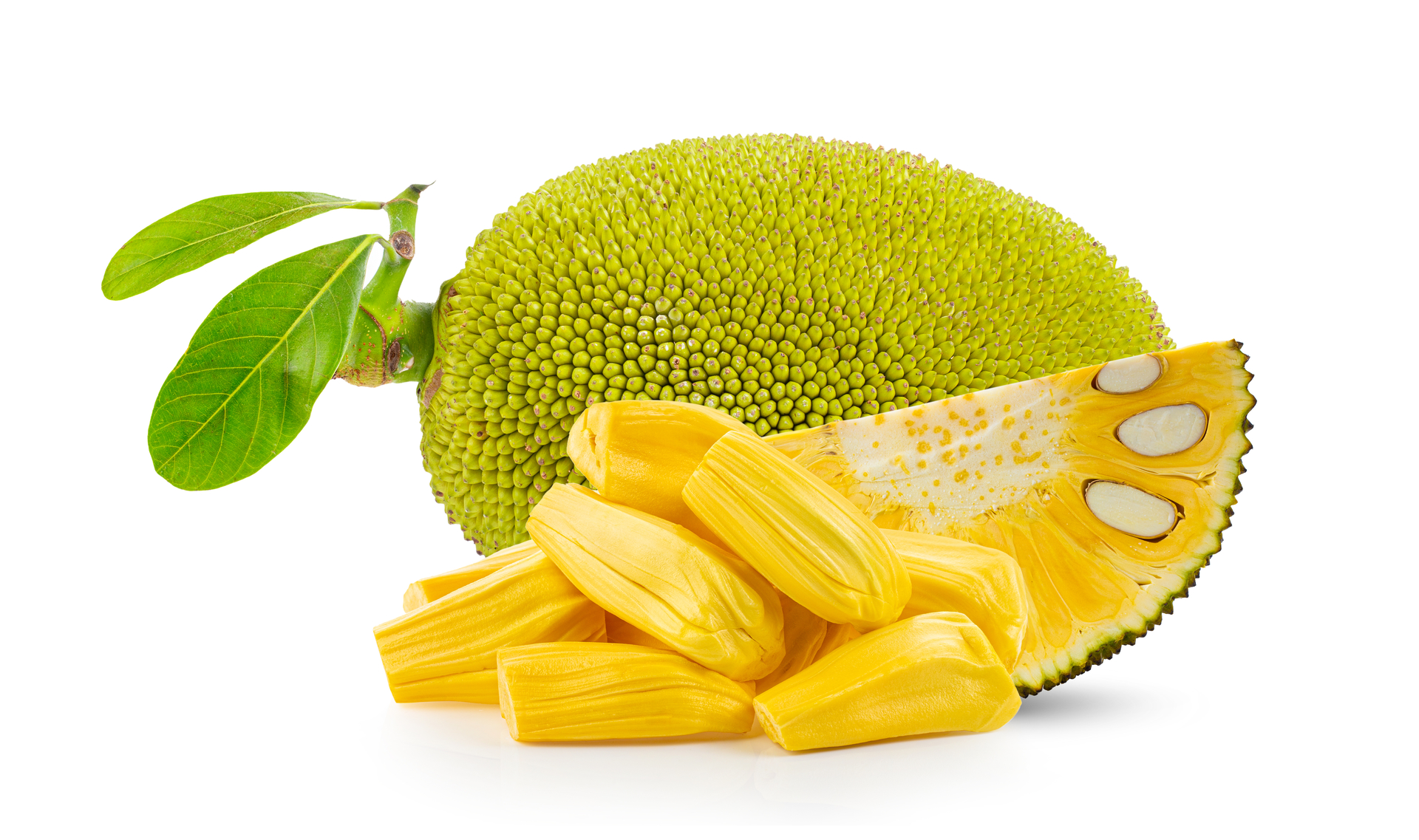Understanding Diabetes
Diabetes is a metabolic disorder characterized by elevated blood sugar levels, which can lead to various complications if left unmanaged. There are several types of diabetes, including type 1 diabetes, type 2 diabetes, gestational diabetes, and prediabetes. Management strategies typically include medication, lifestyle modifications, and dietary changes aimed at controlling blood sugar levels and preventing complications such as heart disease, kidney damage, and nerve damage.
Introduction to Jackfruit
Jackfruit (Artocarpus heterophyllus) is a tropical fruit belonging to the Moraceae family, commonly found in regions such as South and Southeast Asia, Africa, and South America. It is one of the largest tree-borne fruits in the world, with a sweet and distinctive flavor reminiscent of a combination of banana, pineapple, and mango. Jackfruit is versatile and can be consumed ripe as a fruit, or unripe as a vegetable in savory dishes.
Nutritional Composition of Jackfruit
Jackfruit is a nutrient-dense fruit that provides a variety of vitamins, minerals, and phytonutrients. Here’s a breakdown of its nutritional composition per 100 grams of raw jackfruit:
- Calories: Approximately 95 calories
- Carbohydrates: Approximately 23 grams
- Fiber: Approximately 2 grams
- Protein: Approximately 2 grams
- Fat: Approximately 0.6 grams
- Vitamin C: Approximately 13.8 milligrams (23% of the Daily Value)
- Potassium: Approximately 303 milligrams (9% of the Daily Value)
- Magnesium: Approximately 29 milligrams (7% of the Daily Value)
- Vitamin A: Approximately 110 International Units (2% of the Daily Value)
Jackfruit is also rich in antioxidants, including carotenoids, flavonoids, and phenolic compounds, which contribute to its potential health benefits.
Potential Benefits of Jackfruit for Diabetes
Jackfruit may offer several potential benefits for individuals with diabetes, including:
Low Glycemic Index
Jackfruit has a relatively low glycemic index (GI), which means it is less likely to cause rapid spikes in blood sugar levels compared to high-GI foods. This can help individuals with diabetes better manage their blood sugar levels.
Rich in Fiber
Jackfruit is a good source of dietary fiber, which can help slow down the absorption of sugar into the bloodstream and improve blood sugar control. Adequate fiber intake is associated with a reduced risk of type 2 diabetes and improved glycemic control in individuals with diabetes.
Antioxidant Activity
The antioxidants found in jackfruit, such as vitamin C and flavonoids, may help reduce oxidative stress and inflammation, which are implicated in the development and progression of diabetes and its complications.
Potential Blood Sugar-Lowering Effects:
Some animal studies suggest that certain compounds found in jackfruit, such as flavonoids and polysaccharides, may have blood sugar-lowering effects and improve insulin sensitivity. However, more research is needed to confirm these findings in humans.
5. Scientific Evidence and Research Studies
While there is limited clinical research specifically evaluating the effects of jackfruit on diabetes, some studies suggest its potential benefits:
A study published in the Journal of Ethnopharmacology found that jackfruit seed extract exhibited blood sugar-lowering effects and improved glucose tolerance in diabetic rats. The researchers attributed these effects to the presence of bioactive compounds such as flavonoids and saponins.
Another study published in the International Journal of Food Sciences and Nutrition investigated the glycemic response to ripe jackfruit in healthy subjects and found that it elicited a relatively low glycemic response compared to glucose. This suggests that ripe jackfruit may be a suitable option for individuals with diabetes.
While these studies show promising results, more research is needed to fully understand the effects of jackfruit on diabetes and its potential mechanisms of action.
How to Incorporate Jackfruit into a Diabetic-Friendly Diet
Here are some practical ways to incorporate jackfruit into a diabetic-friendly diet:
Fresh Jackfruit:
Enjoy ripe jackfruit as a sweet and nutritious snack or dessert. Choose fresh, ripe jackfruit that is soft, fragrant, and free from blemishes. Remove the seeds and enjoy the flesh raw or blended into smoothies.
Unripe Jackfruit
Cook unripe jackfruit as a vegetable in savory dishes such as curries, stir-fries, and soups. Unripe jackfruit has a mild flavor and a meaty texture that makes it a popular meat substitute in vegetarian and vegan dishes.
Jackfruit Seeds
Roast or boil jackfruit seeds and enjoy them as a nutritious snack. Jackfruit seeds are rich in protein, fiber, and healthy fats, making them a satisfying and diabetic-friendly option.
Precautions and Considerations
While jackfruit can be a nutritious addition to a diabetic-friendly diet, it’s essential to consider the following precautions:
Portion Control:
Pay attention to portion sizes when consuming jackfruit, as it still contains carbohydrates that can affect blood sugar levels. Monitor your blood sugar levels and adjust your intake accordingly.
Interactions with Medications
Jackfruit supplements or concentrated extracts may interact with certain medications used to manage diabetes. Consult with a healthcare professional before taking jackfruit supplements, especially if you are taking medications or have underlying health conditions.
Allergies
Some individuals may be allergic to jackfruit or its components and experience allergic reactions such as itching, swelling, or difficulty breathing. If you have a known allergy to latex or other fruits in the Moraceae family, such as figs or mulberries, exercise caution when consuming jackfruit.
Frequently Asked Questions (FAQs)
Is jackfruit safe for individuals with diabetes?
Jackfruit can be safe for individuals with diabetes when consumed in moderation as part of a balanced diet. Its relatively low glycemic index and high fiber content may help stabilize blood sugar levels. However, it’s essential to monitor portion sizes and consider individual carbohydrate tolerance.
Can jackfruit help lower blood sugar levels?
Some animal studies suggest that certain compounds found in jackfruit, such as flavonoids and polysaccharides, may have blood sugar-lowering effects and improve insulin sensitivity. However, more research is needed to confirm these findings in humans.
Are there any side effects of consuming jackfruit?
While jackfruit is generally safe for most people, some individuals may experience digestive discomfort, such as bloating or gas, especially when consuming large quantities or if they are not accustomed to it. Allergic reactions to jackfruit are rare but can occur in individuals with latex allergies or sensitivities.
Can jackfruit be included in a diabetic meal plan?
Yes, jackfruit can be included in a diabetic meal plan as part of a balanced diet. It can be enjoyed fresh as a snack or dessert, or cooked as a vegetable in savory dishes. Monitor portion sizes and consider the overall carbohydrate content of the meal when incorporating jackfruit into your diet.
Are there any special considerations when buying jackfruit?
When buying jackfruit, choose fresh fruit that is soft, fragrant, and free from blemishes. Alternatively, opt for canned or frozen jackfruit without added sugars or preservatives. Read ingredient labels carefully and avoid products with added sugars or high sodium content.
Can jackfruit supplements be beneficial for diabetes?
While some studies suggest that certain compounds found in jackfruit may have blood sugar-lowering effects, more research is needed to determine the efficacy and safety of jackfruit supplements for diabetes management. Consult with a healthcare professional before taking jackfruit supplements, especially if you have diabetes or other underlying health conditions.
How should jackfruit be stored and prepared?
Fresh jackfruit should be stored at room temperature or in the refrigerator once ripe. Unripe jackfruit can be stored at room temperature until ripe. To prepare jackfruit, cut it open, remove the seeds and fibrous core, and separate the flesh into segments. It can be eaten raw or cooked in various dishes.
Conclusion
Jackfruit is a versatile and nutritious fruit that may offer several potential benefits for individuals with diabetes. Its low glycemic index, high fiber content, and antioxidant properties make it a suitable addition to a diabetic-friendly diet. By incorporating jackfruit into your meals and snacks, you can enjoy its unique flavor and potential health benefits while supporting overall diabetes management. However, it’s essential to monitor portion sizes, consider individual carbohydrate tolerance, and consult with a healthcare professional if you have any concerns or underlying health conditions. With proper care and attention, jackfruit can be a delicious and nutritious addition to your diabetes management plan, promoting better blood sugar control and overall well-being.
- Nu-Derm Skin System Near Longcross, Surrey - May 22, 2025
- Weed Drinks That Taste Like Real Cocktails - May 22, 2025
- Nefertiti Neck Lift Treatment Near Shepperton, Surrey - May 21, 2025

